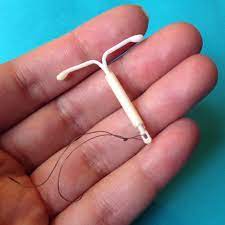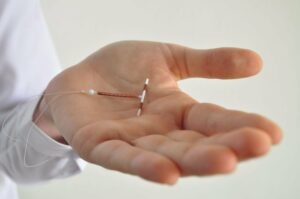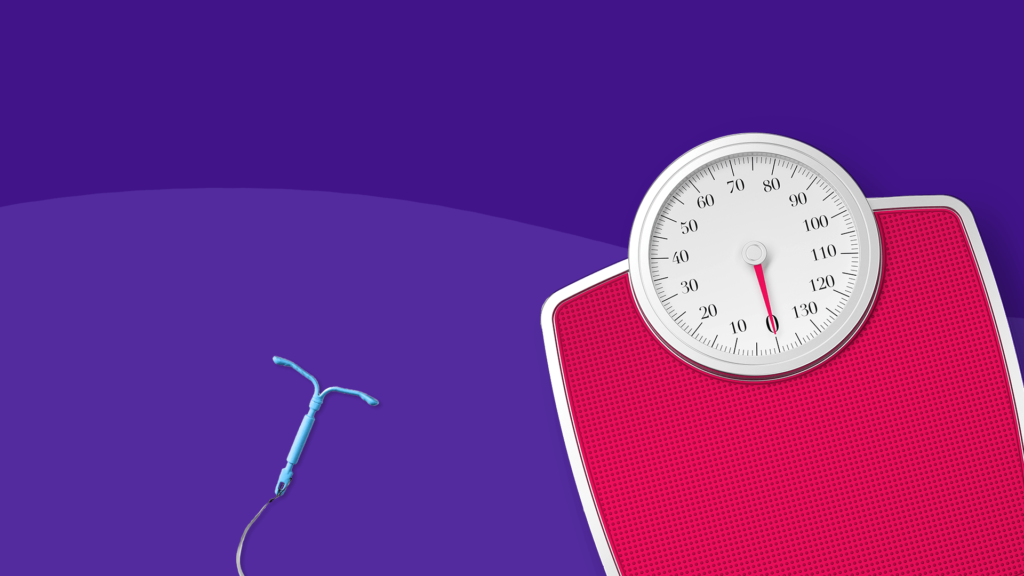One of the common side effects associated with IUDs is weight gain. As a long-acting, reversible form of contraception, the Intrauterine Device (IUD) is a popular choice for those hoping to prevent pregnancy. It is also considered one of the safest and most effective methods available. However, many people have reported an increase in their body weight after using an IUD. So what should you do if you think your IUD might be making you gain weight? In this blog post, we will explore why this may be happening and how you can address it.
Contents
- 1 What is an IUD?
- 2 How Does an IUD Work?
- 3 Can an IUD Cause Weight Gain?
- 4 How To Prevent IUD From Weight Gain?
- 4.1 Exercise Regularly
- 4.2 Eat A Healthy Diet
- 4.3 Manage Stress Levels
- 4.4 Consider Alternative Contraception
- 4.5 Monitor Your Weight Closely
- 4.6 Limit Your Intake Of Alcohol And Caffeine
- 4.7 Get Enough Sleep
- 4.8 Take Supplements
- 4.9 Watch Your Portion Size
- 4.10 Try Intermittent Fasting
- 4.11 Give Yourself Time
- 5 Conclusion
What is an IUD?

An IUD is a small, T-shaped device that is inserted into the uterus to prevent pregnancy. IUDs are one of the most effective methods of birth control, with a failure rate of less than 1%.
There are two types of IUDs: the hormonal IUD and the copper IUD. The hormonal IUD releases a small amount of progestin, which thickens the cervical mucus and prevents sperm from reaching the egg. The copper IUD works by releasing small amounts of copper into the uterus, which is toxic to sperm.
IUD is a long-acting form of contraception, meaning it can remain in place for up to 12 years. IUDs are one of the most popular methods of contraception, but they can come with some side effects. One of the most common side effects is weight gain.
Weight gain is a common side effect of IUDs, and it can be caused by a variety of factors. The first is that IUDs can cause hormonal changes in your body, which can lead to weight gain. The second is that IUDs can also cause inflammation in the body, which can lead to weight gain. Finally, IUDs can also interfere with the absorption of nutrients from food, which can lead to weight gain.
If you are concerned about gaining weight after getting an IUD, there are several things you can do to help prevent it.
How Does an IUD Work?
The working of an IUD depends on its type. Hormonal IUDs need to be changed every three to five years depending on the brand whereas copper IUDs last for up to 10 years.
Once an IUD is inserted, it will start working immediately and can be removed at any time. It’s important to follow the instructions provided by your doctor to ensure that your IUD is used properly and is effective.
Overall, IUDs are an easy and convenient method of birth control that provides long-term protection from pregnancy.
Can an IUD Cause Weight Gain?

It is possible that using an IUD may lead to weight gain, as some research has suggested a link between the two. However, the evidence is not conclusive and further research is needed to confirm any potential association. Many factors could affect weight gain or loss, such as diet and lifestyle, so it is important to consider these when considering any potential changes in your body weight.
There are a lot of myths and misconceptions out there about contraception, and one of the most common is that using an IUD can cause weight gain. The truth is, there is no scientific evidence to support this claim. One study found that women who used an IUD had a lower body mass index (BMI) than those who didn’t use contraception at all.
Some of the reasons why some women may experience weight gain after using an IUD are because of increased appetite, hunger, and cravings. Hormonal changes may also be a factor, as the hormones in the IUD can affect levels of certain hormones in the body that control hunger and metabolism. However, it is important to note that these side effects are not typically caused by the hormones in the IUD itself, but instead by other factors such as diet and lifestyle.
How To Prevent IUD From Weight Gain?

Preventing IUD-induced weight gain does not have to be a difficult process. Here are some tips for reducing your risk of gaining weight:
Exercise Regularly
Regular physical activity helps to keep the metabolism running and can help reduce the risks associated with IUD-induced weight gain. Make sure to get at least 30 minutes of moderate-intensity exercise each day. Some of the best types of exercise include walking, running, swimming, and strength training. These activities can help burn calories and reduce the likelihood of gaining weight.
Eat A Healthy Diet
Eating a healthy diet is also important in preventing IUD-induced weight gain. Make sure to avoid processed foods, sugar, and trans fats as much as possible. Focus on eating fruits, vegetables, whole grains, lean proteins, and healthy fats such as olive oil. This type of diet provides your body with vital nutrients while keeping calorie intake low.
Manage Stress Levels
Stress is another major factor in IUD-induced weight gain. Make sure to take regular breaks throughout the day and practice relaxation techniques such as yoga or deep breathing. Learning how to manage stress better can help prevent unnecessary weight gain. These stress-reducing methods can also help improve overall health and well-being.
Consider Alternative Contraception
If you are concerned about the potential for IUD-induced weight gain, it may be worth considering other forms of contraception. Speak to your doctor about alternative methods, such as the pill, that may not have the same risks associated with them.
Monitor Your Weight Closely
Finally, it is important to monitor your weight regularly when using an IUD. Make sure to weigh yourself at least once a week and record any changes in your weight on a chart or graph. If you notice any sudden changes, speak to your doctor right away so they can try and identify what may be causing it.
Limit Your Intake Of Alcohol And Caffeine
Alcohol and caffeine are known to cause dehydration which can contribute to weight gain. Additionally, they stimulate appetite which can lead to overeating. So, limit your intake of these items or cut them out altogether if possible. The same goes for sugary drinks and processed snacks.
Get Enough Sleep
Getting enough sleep is also important when trying to prevent IUD-induced weight gain. Lack of sleep can cause hormonal imbalances which may lead to increased appetite, cravings, and overeating. Aim for at least 7-8 hours of quality sleep each night.
Take Supplements
Certain supplements may help in the prevention of IUD-induced weight gain. Omega 3 fatty acids, probiotics, and multivitamins are all known to help promote healthy metabolism and reduce cravings. However, always speak to your doctor before taking any kind of supplement as they will be able to advise you on the best option for you.
Watch Your Portion Size
Portion size is another important factor when it comes to preventing weight gain from IUDs. Try to eat smaller meals throughout the day instead of large ones that consist of high-calorie items. This will help you keep your calorie intake under control and prevent unhealthy snacking. Additionally, it’s important to avoid skipping meals as this can lead to overeating at the next one.
Try Intermittent Fasting
Intermittent fasting is a popular weight loss technique that involves alternating between periods of eating and fasting. This type of diet can help regulate hormone levels and reduce the risk of IUD-induced weight gain. Speak to your doctor before trying any new diet to make sure it’s safe for you.
Give Yourself Time
It is important to remember that it can take some time for your body to adjust when using an IUD. So, give yourself a few months before you judge the effect on your weight. It may be that once you have adjusted, the risk of gaining weight reduces, and any changes are reversed.
By following these tips, you can help reduce the risk of gaining weight from an IUD. However, if you do notice any sudden or prolonged changes in your weight, speak to your doctor right away as this could be a sign of other underlying health issues.
Conclusion
IUDs are an effective, safe, and accessible form of long-term contraception for women. IUDs offer many benefits including convenience, low maintenance, a high effectiveness rate of pregnancy prevention, cost-effectiveness in the long run, and protection from some sexually transmitted diseases. Furthermore, there are few side effects associated with using IUDs, making them a desirable option for many women. Despite these advantages, it is important to note that IUDs do not protect against all types of STDs and should be combined with other methods such as condoms to provide the most comprehensive levels of protection.
Consider contacting FitMantra for additional information on nutrition and fitness. You can also get in touch with their nutrition experts through our online nutrition counseling, who can guide you through the process and help you achieve your fitness goals. You can also lose weight with the help of our weight loss program. Download our Fitness app on Android to learn more about us.

Very superb info can be found on website.Blog monetyze